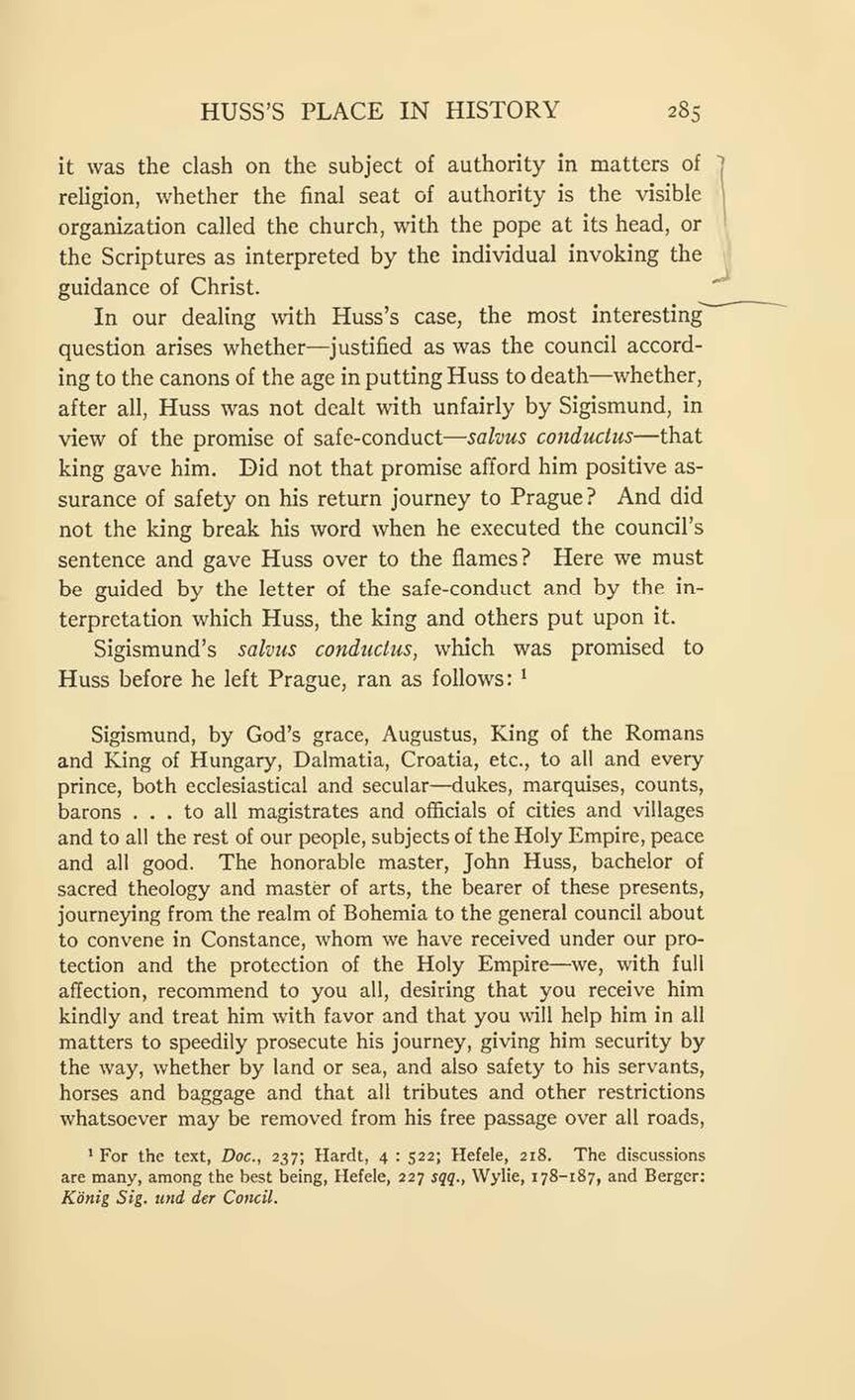it was the clash on the subject of authority in matters of religion, whether the final seat of authority is the visible organization called the church, with the pope at its head, or the Scriptures as interpreted by the individual invoking the guidance of Christ.
In our dealing with Huss’s case, the most interesting question arises whether—justified as was the council according to the canons of the age in putting Huss to death—whether, after all, Huss was not dealt with unfairly by Sigismund, in view of the promise of safe-conduct—salvus conductus—that king gave him. Did not that promise afford him positive assurance of safety on his return journey to Prague? And did not the king break his word when he executed the council’s sentence and gave Huss over to the flames? Here we must be guided by the letter of the safe-conduct and by the interpretation which Huss, the king and others put upon it.
Sigismund’s salvus conductus, which was promised to Huss before he left Prague, ran as follows:[1]
- ↑ For the text. Doc., 237; Hardt, 4: 522; Hefele, 218. The discussions are many, among the best being, Hefele, 227 sqq., Wylie, 178–187, and Berger: König Sig, und der Concil.
